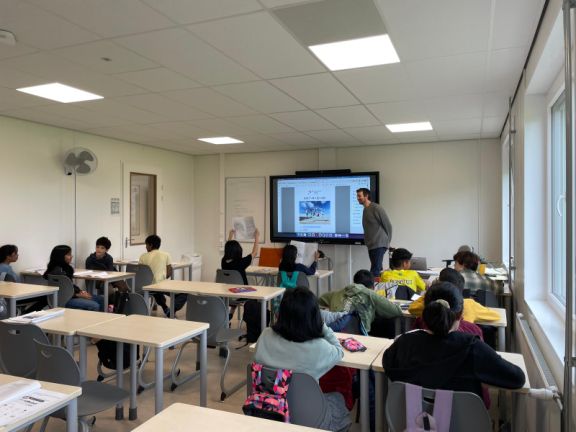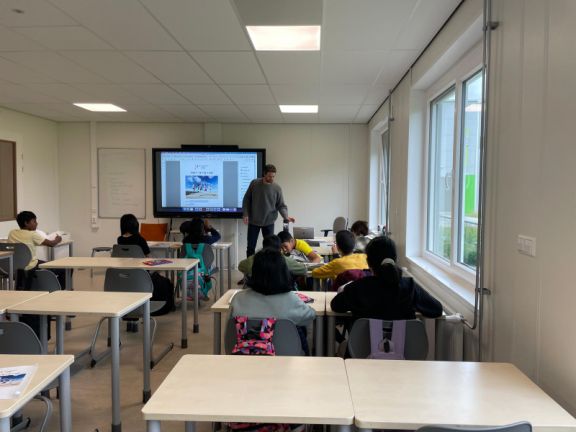By Anne Logman, secondary Dutch teacher & Jeroen Benschop, primary Dutch teacher
In the PYP, we organise both heterogeneous and homogeneous groups within the classroom to ensure variety and proper differentiation throughout the Dutch units. This allows students to both receive and offer support from and to their peers. This cooperative learning approach is a key element of Dutch language acquisition in KG and primary.
On top of that the programme in primary is geared towards speaking Dutch in a social situation, with the outlook to give children the tools to play with the children in their neighbourhood, join a sports club etc. In secondary we add reading & writing in to our Dutch language acquisition programme.
The transition from Grade 5 to Grade 6 is a challenging one. Not only did we group students according to their Language Acquisition level or (near) native level, we also focussed on more academic language from the start of Grade 6.
We have seen in the last few years that students often know how to speak a little in Dutch but reading and especially writing correctly is not a skill that is already learned in primary (due to age). In order to make the transition as smooth as possible, we asked the Grade 5 Dutch teacher to let all students take a language test, consisting of a reading task with questions and a writing task in which past tenses had to be used.
Induction Unit
Based on the results we decided to start in Grade 6 with an ‘induction unit’ for all students. In this unit we offer the basics of
grammar, reading and writing. We expect students who already have
more language skills, to progress faster. Our planning is to regroup the
students after the Autumn Break in different language levels and the goal is to
have all students in their appropriate level after the Winter Break.


How to improve your Dutch skills
In order to improve your Dutch Language skills (as a family), it is important to try to use all the different language skills such as reading, listening and speaking as often as possible. A few suggestions to do this:
- Reading the Dutch news/magazines
- Visit the local library to find age and level appropriate books
- Watch the Dutch news (online)
- Watch video’s on a variety of topics on www.schooltv.nl
- Speak Dutch in daily life situations
- Join a (Dutch speaking) sport club
- Write messages in Dutch to friends
- Keep a dairy in Dutch
- Use online resources to practice Dutch grammar skills
